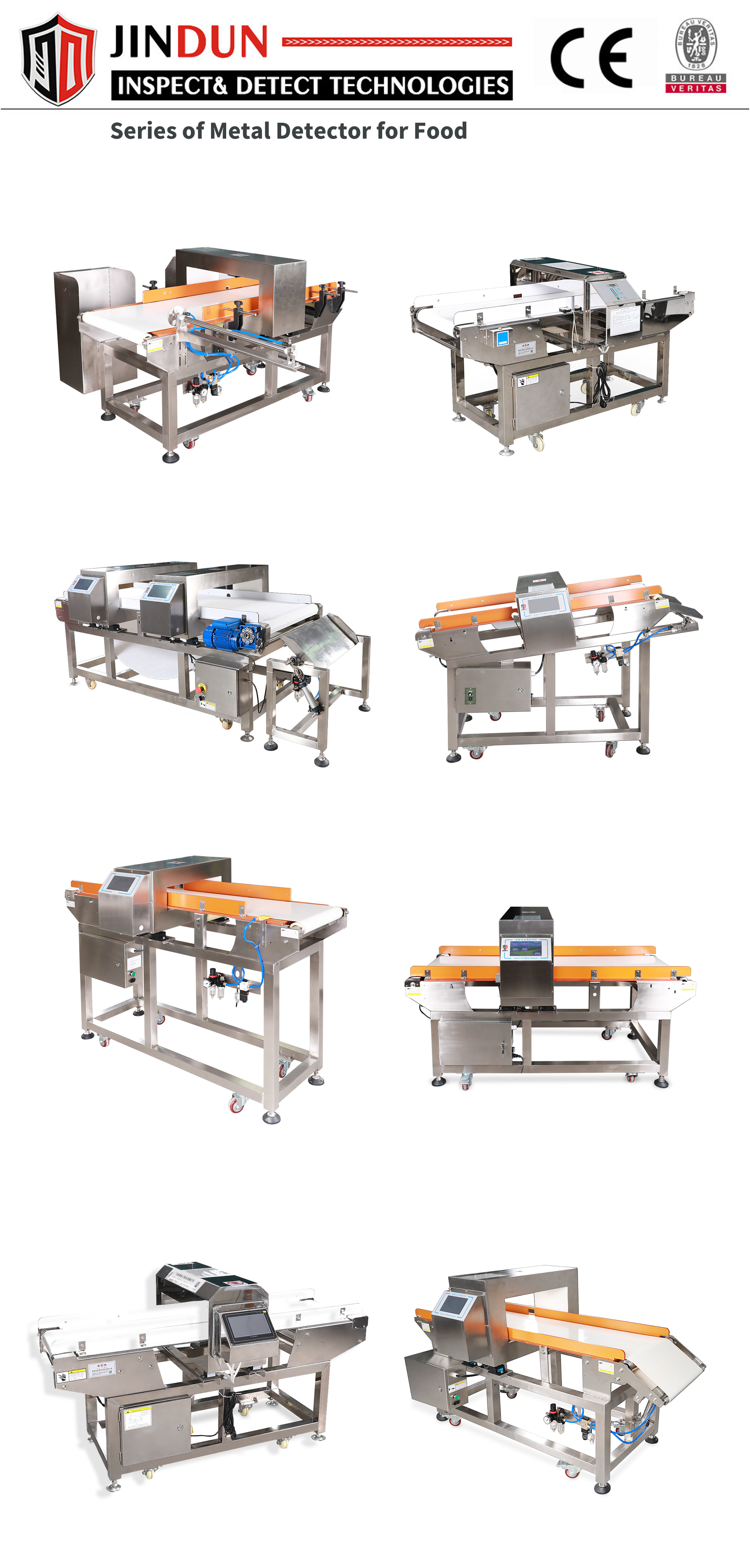Email format error
Email cannot be empty
Email already exists
6-20 characters(letters plus numbers only)
The password is inconsistent
Email format error
Email cannot be empty
Email does not exist
6-20 characters(letters plus numbers only)
The password is inconsistent


Unveiling the Unsung Heroes of Food Safety: Commercial Food Metal Detectors
In the bustling world of food production, ensuring the safety and quality of food products is paramount. Amidst the clanging of machinery and the hum of conveyor belts, there exists an unassuming hero: the commercial food metal detector. These devices play a critical role in maintaining food safety standards, protecting consumers, and preserving the integrity of food brands. Let’s dive into the fascinating world of commercial food metal detectors, their importance, and how they work to keep our food safe.
What Are Commercial Food Metal Detectors?
Commercial food metal detectors are sophisticated machines designed to detect metallic contaminants in food products during the production process. These contaminants can include ferrous (iron), non-ferrous (aluminum, copper), and stainless steel particles that might inadvertently enter the food supply chain. The presence of such contaminants can pose serious health risks to consumers and lead to costly product recalls, damaging a brand’s reputation.
The Importance of Metal Detection in Food Production
1. Consumer Safety: The primary goal of using metal detectors in food production is to ensure the safety of the end consumers. Even tiny metal fragments can cause significant harm if ingested, leading to injuries and potential lawsuits.
2. Compliance with Regulations: Food safety regulations worldwide, such as the FDA’s Hazard Analysis and Critical Control Points (HACCP) in the United States, require stringent measures to prevent contamination. Metal detectors help manufacturers comply with these regulations, avoiding legal troubles and penalties.
3. Brand Protection: A single incident of contaminated food reaching consumers can tarnish a brand’s reputation. By implementing metal detection systems, companies can avoid such incidents, maintaining consumer trust and brand loyalty.
4. Operational Efficiency: Detecting and removing contaminants early in the production process prevents costly rework and reduces waste. This leads to more efficient operations and cost savings in the long run.
How Do Commercial Food Metal Detectors Work?
Commercial food metal detectors operate on the principle of electromagnetic induction. Here’s a simplified explanation of their functioning:
1. Creating an Electromagnetic Field: The detector generates an electromagnetic field using a coil system. When food products pass through this field, any metallic contaminants disrupt the field.
2. Detection of Disruption: The disruption caused by metal particles changes the characteristics of the electromagnetic field. This change is detected by the system’s sensors.
3. Signal Processing: The detector’s electronic system processes the signal and determines the type and size of the metal contaminant. Advanced systems can distinguish between different types of metals.
4. Ejection Mechanism: Upon detecting a contaminant, the system triggers an automatic rejection mechanism, such as a pneumatic pusher or a retractable belt, to remove the affected product from the production line.

Types of Commercial Food Metal Detectors
There are various types of commercial food metal detectors, each suited to different stages of the production process and types of food products:
1. Conveyor Belt Metal Detectors: These are the most common type, used in production lines where food products are transported on a conveyor belt. They are suitable for packaged and bulk products alike.
2. Pipeline Metal Detectors: These detectors are used for liquid or semi-liquid products that are transported through pipelines. They are essential for detecting contaminants in soups, sauces, and dairy products.
3. Gravity Fall Metal Detectors: Ideal for products that fall freely, such as grains, spices, and powders. These detectors are positioned at the point where the product is falling, ensuring thorough inspection.
4. Pharmaceutical Metal Detectors: Specially designed for the pharmaceutical industry, these detectors ensure that medications are free from metallic contaminants, safeguarding consumer health.
Innovations in Metal Detection Technology
The field of commercial food metal detectors is continually evolving, with advancements aimed at improving sensitivity, accuracy, and ease of use. Some of the latest innovations include:
1. Multi-Frequency Technology: Traditional metal detectors operate at a single frequency, but modern systems use multiple frequencies to enhance detection sensitivity across a range of product types and sizes.
2. Integrated Software Solutions: Advanced metal detectors come with sophisticated software that provides real-time data, trend analysis, and comprehensive reporting. This integration helps manufacturers optimize their detection processes and maintain thorough records for compliance purposes.
3. Sanitary Design: To meet the stringent hygiene standards of the food industry, metal detectors are now designed with easily cleanable components and robust construction to withstand frequent washdowns.
The Future of Food Safety: Beyond Metal Detection
While commercial food metal detectors are vital for detecting metallic contaminants, the future of food safety encompasses a broader range of technologies. X-ray inspection systems, for example, can detect non-metallic contaminants like glass, stone, and bone, providing an additional layer of protection. Furthermore, advancements in artificial intelligence and machine learning are paving the way for smarter detection systems that can predict and prevent contamination before it occurs.
Conclusion
Commercial food metal detectors may not always be in the spotlight, but their role in ensuring food safety is indispensable. By detecting and removing metallic contaminants, these devices protect consumers, help companies comply with regulations, and preserve brand integrity. As technology continues to advance, we can expect even more sophisticated solutions to emerge, further safeguarding the food we consume every day.
In the ever-evolving landscape of food production, one thing remains certain: the vigilance of commercial food metal detectors is essential to keeping our food safe and our trust in food brands unshaken.

